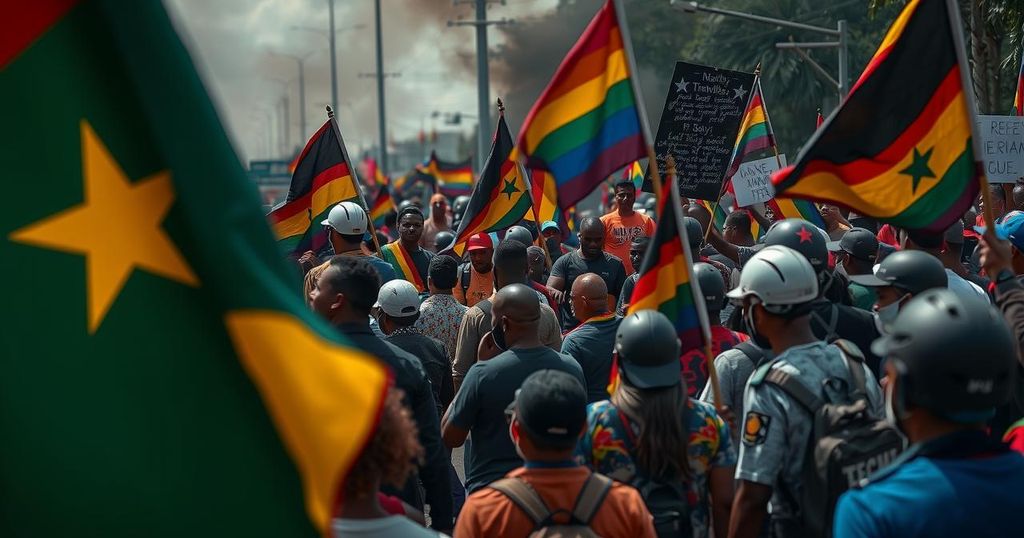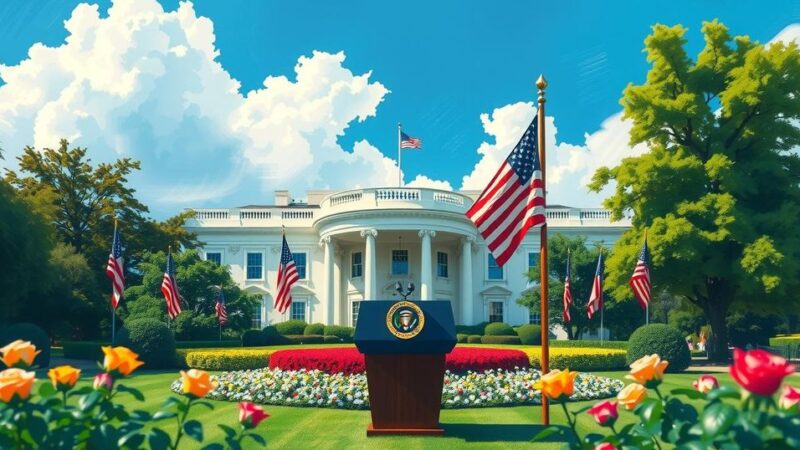Mozambique has banned protests following violent unrest after a disputed presidential election that has resulted in multiple fatalities. The ruling Frelimo party, which has been in power since 1975, faced accusations of election rigging. The Interior Minister labeled the protests as acts of terrorism, while opposition leaders called for reform and safety amid ongoing violence. Internet access has been restricted as the situation escalates, prompting concerns over civil rights and governance.
The government of Mozambique has instituted a ban on protests in response to ongoing unrest following the recent presidential election, which has resulted in fatalities and injuries. The election, which took place last month, was characterized by significant dispute after Frelimo, the ruling party since the nation’s independence in 1975, was declared the winner with over 71% of the vote. Opponents have contested the legitimacy of this result and claimed unfair practices during the electoral process. The Interior Minister, Pascoal Ronda, condemned the protests as acts of terrorism, attributing the violence to destabilizing efforts by organized groups. The situation escalated to the point where security forces were deployed to restore order, and there have been numerous reports of police employing tear gas and rubber bullets against demonstrators in Maputo. The unrest began shortly after the announcement of the election results, leading to violent clashes that have caused at least 18 confirmed deaths, though rights organizations suggest that the number may exceed 30. As the political climate deteriorated, opposition leader Venâncio Mondlane went into hiding out of fear for his safety, following the murder of his aide and legal counsel. Ronda has urged citizens to cooperate with the authorities, emphasizing the need to suppress what he terms acts of subversion, while accusing protest leaders of instigating violence among youth. Furthermore, internet access has been restricted in an apparent effort to quell public dissent. The ban on protests serves to highlight the increasing tensions in Mozambique, which are rooted in the contentious electoral environment. The long-standing ruling party, Frelimo, faces significant public criticism, yet maintains a hold on power that has sparked widespread discontent and calls for reform. As political unrest continues to unfold, the government’s response to dissent may have broader implications for Mozambique’s democratic processes and civil liberties.
The political landscape in Mozambique has been primarily shaped by the ruling Frelimo party since the country gained independence from Portugal in 1975. Historically, Frelimo’s governance has been marked by claims of electoral malpractice and suppression of opposition. The recent presidential election, held in October, has intensified scrutiny over Frelimo’s electoral practices, particularly regarding claims of vote rigging and intimidation. The opposition, particularly the party’s presidential candidate, Venâncio Mondlane, has alleged that the election process was compromised. This political strife has manifested in violent protests that have raised critical concerns over human rights and the state of democracy in Mozambique, especially with the country’s history of civil conflict and the aftermath of past electoral disputes.
In conclusion, the ban on protests in Mozambique reflects the government’s attempt to control public dissent following elections perceived as fraudulent by many citizens. The violent consequences of these protests underscore the increasing divisions within the country and raise important questions about governance and civil rights. With accusations of terrorism and criminal acts levied against protestors by officials, the government’s hardline stance may contribute to a cycle of unrest that could challenge Mozambique’s stability and democratic integrity moving forward.
Original Source: www.bbc.com






